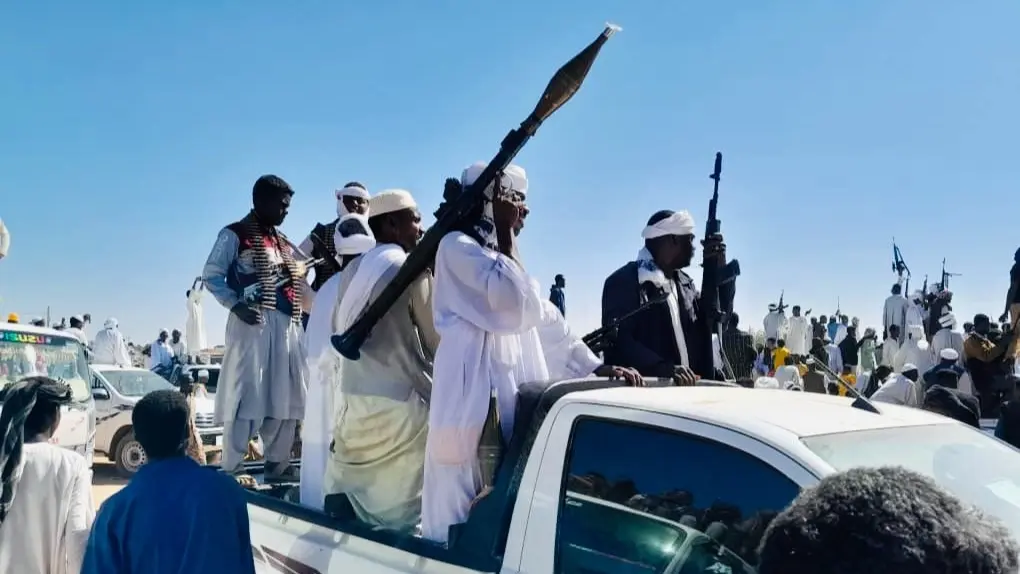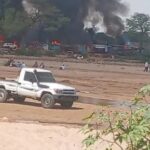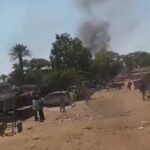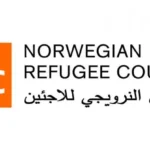Darfur follo up : Sudan
The current calls to arm citizens in Sudan, organize what has been called “popular resistance,” and open the way for individuals to purchase weapons have raised great fears that the country will slide toward more chaos.
These calls may provide a favorable incubator for global terrorist groups. As happened in the nineties of the last century; Which led to Sudan being placed on the list of states sponsoring terrorism for about 20 years before it was removed from it in December 2020.
These fears are based on the fact that similar popular army policies pursued by the Brotherhood regime in the 1990s led to the emergence of groups with links to terrorist organizations active abroad, such as Al-gaeida and ISIS.
In some Sudanese states that are still safe in the north and east of the country, popular mobilization campaigns called “armed popular resistance” have continued, aiming to arm citizens to defend their areas for fear of the battles between the army and the Rapid Support Forces spreading to them, similar to what happened in the city of Wad Madani in Al-Jazira State.
In the Al-Ubaidiya area in the Nile River State in northern Sudan, the armed popular movement took to the streets of the region with the participation of hundreds of young men who carried their weapons amid chants urging the rest of the citizens to arm themselves and train in the use of firearms to participate in securing the entrances and exits of the region.
A number of those who joined the armed popular resistance confirmed that they had provided financial donations, cars, and weapons to support this movement, declaring their readiness to protect the region from the looting and plundering that affected a number of cities and villages in Darfur, Kordofan, Khartoum, and Gezira State.
Abu Zaid Al-Hassan, a resident of Al-Ubaidiya, said: “We, thank God, in Al-Ubaidiya on the Nile River, are not advocates of war, and we are peaceful people. The proof of this is that all of Sudan has been with us for 18 or 19 years. Thank God, we do not have tribal or regional problems, but the war broke out and imposed itself on us.” We have the right to defend, and we have responded to the call of the Commander-in-Chief of the Armed Forces to declare alert and jihad, and we will proceed with the implementation of this matter,
The head of the Popular Support Committee of the Sudanese Army, Yasser Al-Fadlabi, announced in a speech he delivered during the rally, the readiness of more than 30,000 young men in the Nile River State, who were trained in 210 camps in preparation for their participation in defending the state, accusing the Rapid Support Forces of harming the “attack on residential areas without confrontation.” Sudanese army.
Army Commander Abdel Fattah Al-Burhan, in statements on Friday, confirmed his support for the armed popular resistance, and ordered the arming of everyone who can carry weapons to confront the Rapid Support Forces, which expanded in other states outside the capital, Khartoum, while political parties warned of the consequences of providing citizens with weapons because of what it entails. From the risk of dragging the country into an all-out civil war.
The current calls to arm citizens in Sudan, organize what has been called “popular resistance,” and open the way for individuals to purchase weapons have raised great fears that the country will slide toward more chaos.
These calls may provide a favorable incubator for global terrorist groups. As happened in the nineties of the last century; Which led to Sudan being placed on the list of states sponsoring terrorism for about 20 years before it was removed from it in December 2020.
These fears are based on the fact that similar popular army policies pursued by the Brotherhood regime in the 1990s led to the emergence of groups with links to terrorist organizations active abroad, such as Al-Qaeda and ISIS.
In some Sudanese states that are still safe in the north and east of the country, popular mobilization campaigns called “armed popular resistance” have continued, aiming to arm citizens to defend their areas for fear of the battles between the army and the Rapid Support Forces spreading to them, similar to what happened in the city of Wad Madani in Al-Jazira State.
In the Al-Ubaidiya area in the Nile River State in northern Sudan, the armed popular movement took to the streets of the region with the participation of hundreds of young men who carried their weapons amid chants urging the rest of the citizens to arm themselves and train in the use of firearms to participate in securing the entrances and exits of the region.
A number of those who joined the armed popular resistance confirmed that they had provided financial donations, cars, and weapons to support this movement, declaring their readiness to protect the region from the looting and plundering that affected a number of cities and villages in Darfur, Kordofan, Khartoum, and Gezira State.
Abu Zaid Al-Hassan, a resident of Al-Ubaidiya, said: “We, thank God, in Al-Ubaidiya on the Nile River, are not advocates of war, and we are peaceful people. The proof of this is that all of Sudan has been with us for 18 or 19 years. Thank God, we do not have tribal or regional problems, but the war broke out and imposed itself on us.” We have the right to defend, and we have responded to the call of the Commander-in-Chief of the Armed Forces to declare alert and jihad, and we will proceed with the implementation of this matter, God willing.
The head of the Popular Support Committee of the Sudanese Army, Yasser Al-Fadlabi, announced in a speech he delivered during the rally, the readiness of more than 30,000 young men in the Nile River State, who were trained in 210 camps in preparation for their participation in defending the state, accusing the Rapid Support Forces of harming the “attack on residential areas without confrontation.” Sudanese army.
Army Commander Abdel Fattah Al-Burhan, in statements on Friday, confirmed his support for the armed popular resistance, and ordered the arming of everyone who can carry weapons to confront the Rapid Support Forces, which expanded in other states outside the capital, Khartoum, while political parties warned of the consequences of providing citizens with weapons because of what it entails. From the risk of dragging the country into an all-out civil war.

Fears that Sudan will slide into civil war
The risks of Sudan sliding into civil war are increasing with the distribution of weapons to civilians, within the framework of the so-called “popular resistance” that is expanding under the supervision of the army to confront the Rapid Support Forces, which it has been grappling with since mid-April.
Sudanese Army Commander Abdel Fattah Al-Burhan announced his support for arming the groups calling themselves the Popular Resistance, after the Rapid Support Forces seized large parts of Al-Jazira State and took control of the capital, Wad Madani, and continued their advance towards the south and took control of several areas in the neighboring Sennar State.
A video was posted on social networking sites of masked, heavily armed people who called themselves the “Muatasem Billah Strategic Brigade” in Merawi, northern Sudan, as part of the “Popular Resistance” to support the army in repelling the Rapid Support Forces led by Muhammad Hamdan Dagalo (Hemedti).
The Coordination Committee of Eastern Sudanese entities called for the mobilization of all Sudanese people capable of bearing arms to “defend the land, honor, religion, and capabilities of the nation, and to form courts for participants and collaborators with the Rapid Support Forces.”
The Secretary-General of the Coordination Committee, Mubarak Al-Nour, told “We called on the Sudanese to stand with the Sudanese Armed Forces and other regular forces. We also called for arming citizens to defend themselves, their cities, their villages, their honor, and their property,” adding that “the citizens’ response was great because they felt the extent of the targeting and the imminent danger.” on them”.
But the leader of the Sudanese Lawyers Democratic Front, Samir Al-Sheikh, saw that “the call made by the authority to arm citizens and create popular resistance to confront the Rapid Support militia is by no means innocent, and the Islamic movement stands behind it.”
He said: “This issue appeared clearly in the emergence of Islamist brigades such as the Al-Baraa bin Malik and Al-Mu’tasim Billah brigades, as they participated in battles at the level of Khartoum and some states.”
He added, “Any call to create popular armed resistance is known to have foundations and rules and is supposed to take place through volunteering, military tests, registering qualified people and those who have the ability to carry weapons, classifying them, and not accepting those with prior convictions. But launching the matter in this way indicates that it is a rightful call that is intended avoid
Army incapacity
He considered these calls to be “an attempt by the army commander, who is in collusion with the Islamists, to arm their brigades, and it is known that they are fighting the militia in order to return to power.” The second reason, according to the sheikh, is “the inability of the army and its leaders and its failure to repel the Rapid Support Forces, which prompted it to arm civilians.”
The advisor to the Higher Academy for Strategic and Security Studies, former Major General of the Sudanese Army, Moatasem Abdel Qader Al-Hassan, considered that what he described as “armed popular resistance” succeeded in stopping the expansion of the Rapid Support Forces “because it arose from a real field reality of the people.” Who found himself in an existential battle because the militia left confronting the Sudanese army and moved to attack the lives, property, and honor of the people,” as he put it.
He explained that the government was quick to “organize this resistance and opened camps for military training and the use of various weapons,” and added that “the greatest evidence of the acceptance of this resistance is the accession of states in Darfur, South Kordofan, and Blue Nile that were previously fighting against the army. They have now allied with it and are fighting together and have achieved tangible results over the earth”.
He revealed that the “armed resistance” has become present in all 12 states controlled by the army, indicating that there is a presence in the six states controlled by the Rapid Support Forces. He explained that “the role assigned to the resistance is to defend civilian neighborhoods and homes, but operations Defense of military sites and operations to restore sites controlled by the militia are carried out by the Sudanese army.”
He pointed out that “the popular resistance operation is organized under the management of Sudanese army officers, and most of these forces are retirees who worked in the military, security and police services, so the level of discipline is high.”
‘Hide atrocities’
For his part, Ibrahim Mukhair, a member of the Advisory Office of the Commander of the Rapid Support Forces, believes that “Al-Burhan insisted on politicizing the decision in the army, subjecting the Sudanese Armed Forces to the complete control of extremist Islamist politicians.”
He added that the Islamists established armed brigades that he said committed crimes that embarrassed the Burhan regime, “which encouraged him to adopt what is known as popular resistance, that is, arming civilians, as they are trying to hide the atrocities of those militias within the Popular Resistance Fund after the international media and free press exposed them and international organizations complained about them.” “.
The official in the Rapid Support Forces considered that “the policy of distributing weapons to civilians does not affect the speed of our progress in the field or reduce our successive victories, but it will put civilians in front of highly trained regular forces.”
He pointed out that this step by the Sudanese army “will expose civilians to great dangers,” and Mukhair accused the army of forcing some civilians to carry weapons. “We have witnesses who confirm this.”
Abdul Qadir responds to this, saying: On the contrary, it is the people who forced the army to arm it to defend themselves against militia attacks, and in many states, crowds of people besieged the army headquarters to demand that they be armed and participate in the fighting after they were targeted by the Rapid Support.
Risks of “civil war”
Mukhair, in turn, stressed that the crisis “lies in the fact that the cost of disarming citizens will be high in the future, if the region escapes the tribal war whose harbingers are clear today, as some tribes announced their complaints and resentment that they were not armed like others, which may upset the balance.” “This will inevitably lead to a new tribal civil war in northern Sudan similar to the tragedy that lasted for twenty years in Darfur.”
The Sheikh, in turn, explains that Sudan has a history of spreading weapons outside regular frameworks, “and with the spread of weapons in this random manner, the matter will have great consequences and risks, and it has already begun to appear in some areas and skirmishes that have begun between citizens and tribes, with the presence of tribal and ethnic diversities, especially in eastern Sudan.” and conflicts among themselves.”

He warned that arming citizens leads to fueling these conflicts and tribal feuds that already exist, and skirmishes occur in them, but they were resolved through civil roads and popular councils, but the presence of weapons will give these conflicts a military character, which may threaten to slide into a civil war, with the authority not controlling the situation. Issues of arms distribution and legalization.
The Sudanese have experiences in arming civilians that have led to fueling conflicts, as happened in the Darfur region in the west of the country, where the conflict broke out in 2003, killing 300,000 people and displacing 2.5 million from their homes, according to the United Nations. An official statistic issued in 2018 indicates that there are five million pieces of weapons. Weapons in the possession of civilians in various regions of the country.
But a security official said that this number is much lower than the reality and “does not include what is in the hands of the rebel militias fighting the government in Darfur or South Kordofan and Blue Nile.” He added, “Before the war, arms licensing procedures became easy and were controlled by military intelligence and not through the Weapons and Ammunition Law.” As it was before.
He explained, “The arms trade has flourished across the country’s western, northwestern, and eastern borders.” Yusuf Ali, a citizen residing in the east of the island, said, “If no party provides me with a weapon, obtaining it is easier than obtaining food supplies. I can simply buy it.”
External links
The relationship between armed groups affiliated with the Muslim Brotherhood in Sudan and foreign terrorist organizations dates back to the early 1990s. Omar al-Bashir hosted Al-Qaeda leader Osama bin Laden in Khartoum and gave him training camps in the east of the country. The door is wide for increasing the connection between the Sudanese Brotherhood militias and international extremist organizations.
The Brotherhood regime was accused of supporting terrorist groups that carried out the attack on the United States embassies in the Kenyan capital, Nairobi, and the Tanzanian capital, Dar es Salaam, in 1998, and the bombing of the American battleship “USS Cole” near the shores of Yemen in 2000, which led to Sudan being included in the list of countries sponsoring terrorism before it was completed. It was removed from the list in 2020 through efforts made by the government of Abdullah Hamdok, which was formed after the overthrow of the Bashir regime.
Journalist Wael Mahjoub warns of the dangers of the policy of mobilization and the participation of Brotherhood brigades in the current fighting. Pointing out that it was one of the reasons that, over the past thirty years, strengthened the global belief that Sudan was linked to foreign terrorist groups.
He explains, “The problems will appear later when the political movement to which these brigades belong seeks to tighten its grip and jump to rearrange the scene to what it was like before the fall of the previous regime.”
Regional dimension
In light of the increasing spread of terrorist groups in West and East African countries, some of which have direct borders with Sudan, the regional dimension seems strongly present, according to Abdul Hafeez Abdullah Abkar, a political activist interested in security issues.
Abkar told : the current popular army operations herald the birth of more tribal militias, which could have serious regional influences due to the presence of strong ethnic ties with neighboring countries.
Abkar points out that allowing the ownership and purchase of weapons will lead to more cross-border flows, which will encourage terrorist groups in neighboring regional countries and others to expand their activities and search for a foothold by taking advantage of the fluid security situation to work in arms and drug trade, human trafficking, and plundering resources.

Abkar stresses the need for the international and regional community to assume its responsibilities towards this situation, especially Sudan’s neighboring countries, which suffered during the rule of the Brotherhood regime from mutual interference and support for armed groups to destabilize the region.
Sudanese analysts and politicians warned of the danger and consequences of the escalation of fighting in Sudan, which reached its peak in recent days, amid strong criticism of calls to arm tribes indiscriminately, and ruled out achieving the military resolution that both parties to the crisis hope for.
Sudanese political analyst, Walid Ali, confirmed that the step to arm citizens came to confirm the fact that the Sudanese army is unable to protect citizens and is a reaction to what the Rapid Support is doing.
He said, “This step is a reaction to the Rapid Support violations against civilians on the one hand, and it also has another dimension that was exploited by leaders affiliated with the former Islamic regime to strengthen their vision against the negotiating process.”
He added that this step would accelerate the pace of expected clashes, and would also increase the military escalation that would take on a frightening ethnic and social character.
He explained that it must be taken into account that the Rapid Support practiced the same arming approach in western Sudan, and forced recruitment of many citizens in Khartoum and Al-Jazira.
Ali warned that all these steps portend a security disaster, the spread of extrajudicial killings, and an increase in violence and crime rates.
Fighting broke out between the Sudanese army and the Rapid Support Forces in mid-April last year, after weeks of tension between the two parties due to disagreements over plans to integrate the Rapid Support Forces into the army, while the military and civilian parties were putting the final touches on a political process supported by… Internationally.
The fighting led to the displacement of more than 7.2 million people inside and outside Sudan, and the death of about 12,000 people, according to United Nations statistics.








